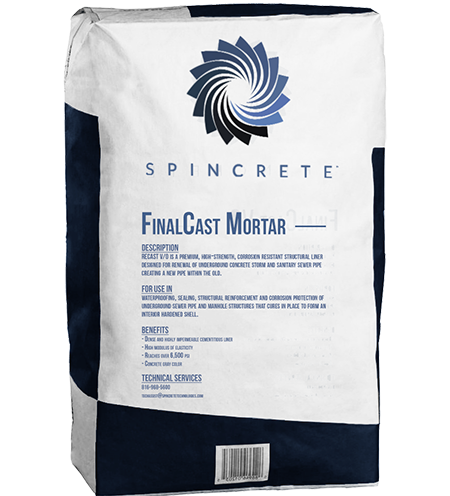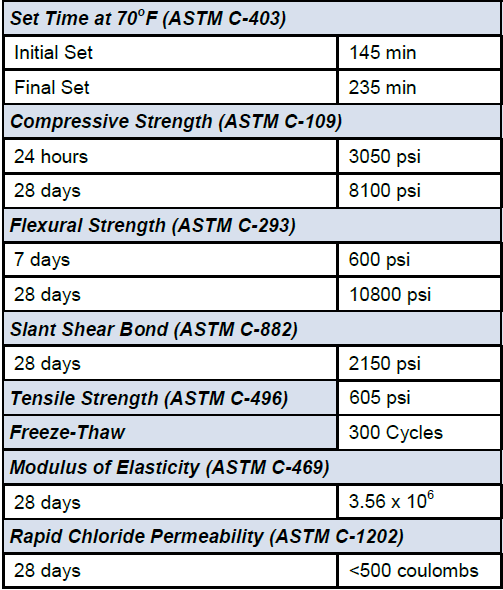FINALCAST MORTAR: Centrifugally Cast Concrete Pipe Mortar
FINALCAST MORTAR is a high-strength, cementitious liner designed for renewal of underground con-crete storm and sanitary sewer pipe creating a new pipe within the old. Curing in place to form a hardened shell, FINALCAST MORTAR is formulated with a focus on waterproofing, sealing, abrasion resistance, structural reinforcement and corrosion protection.
For use in waterproofing, sealing, structural reinforcement, and corrosion protection of underground sewer pipe and manhole structures that cure in place to form an interior hardened shell.
BENEFITS
- Dense and highly impermeable cementitious liner
- High modulus of elasticity
- Fiber reinforced for added flexural strength
- Concrete gray color
PRODUCT APPLICATION
DOWNLOADS
PACKAGING & COVERAGE
- 50 lb (22.7 kg) bags
- 50 lb (22.7 kg) plastic pails
50 lb (22.7 kg) yields approximately 0.43 cubic feet

TYPICAL TEST DATA
 The data shown is typical for controlled laboratory conditions. Reasonable variation from these results can be expected due to variation in type and quantity of cement, and sand gradation of the mortar mix. When testing the field mixed material, other factors such as variations in mixing, water content, temperature and curing conditions should be considered.
The data shown is typical for controlled laboratory conditions. Reasonable variation from these results can be expected due to variation in type and quantity of cement, and sand gradation of the mortar mix. When testing the field mixed material, other factors such as variations in mixing, water content, temperature and curing conditions should be considered.
